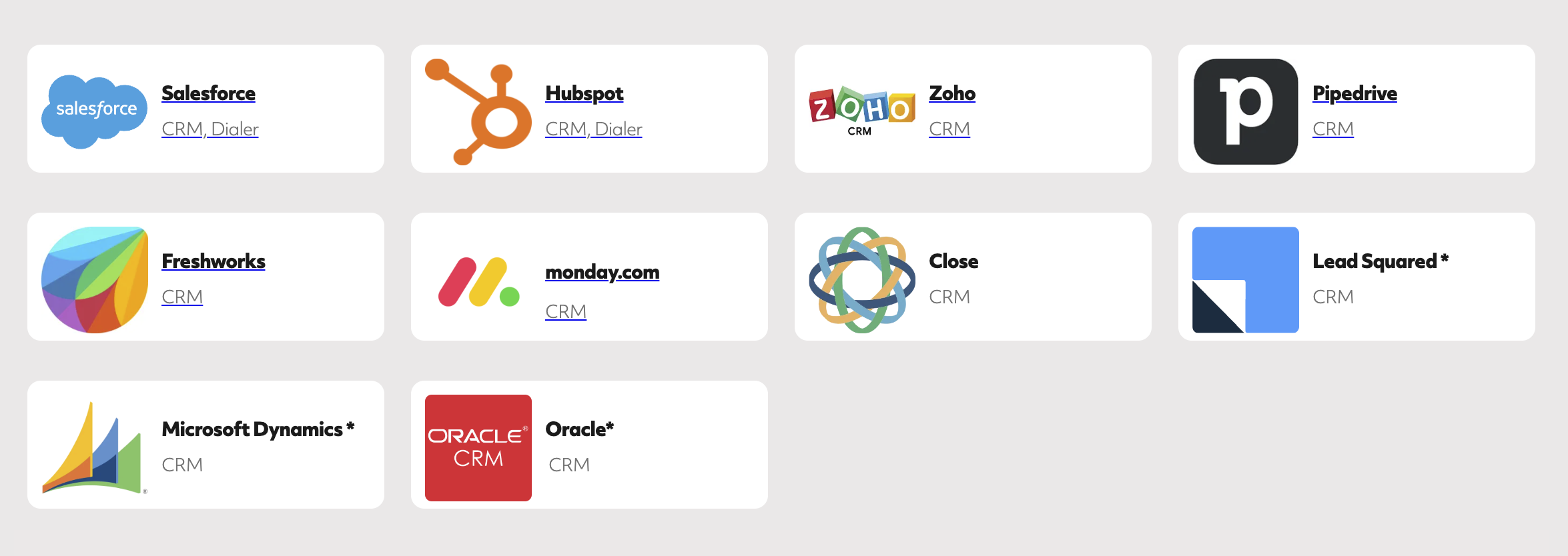Why Rafiki
Pricing


Pricing
Solutions

RevOps Leaders
Synchronize revenue generating functions

SDR Leaders
Get your team aligned and Coach your Reps 3x faster at scale

Sales Leaders
Unlock pipeline truth, drive confident forecasts

In an era where a single swipe on a smartphone can close a deal, and a well-placed algorithm can identify your next big client, the world of sales is not just evolving; it's undergoing a revolution.
Digital sales strategies are increasingly outperforming traditional methods, with the average conversion rate across various industries reaching 3.3%.
Companies that embrace advanced technologies in sales are not only boosting their productivity but are also seeing a marked improvement in customer engagement and retention.
For instance, marketing automation, a key component of digital sales, has enabled B2C companies to achieve conversion rates as high as 50%.
The digital sales landscape is now data-driven and dynamic, demanding a new arsenal for success. In this high-stakes game, technology is not just an ally; it's your ace in the hole.
Email marketing continues to be a formidable tool in this arsenal.
In 2024, it's projected that personalized and automated email campaigns will be critical strategies for businesses seeking to build customer relationships and drive conversions (Forbes, 2024).
Whether you’re a startup entrepreneur or at the helm of a Fortune 500 company, understanding and leveraging the right tech tools can catapult your sales from mundane to meteoric.
So, buckle up and join us on this exhilarating journey to unlock the full potential of tech adoption in sales. It's not just about staying relevant; it’s about leading the charge in the fast-paced world of modern sales.
The landscape of sales and technology is in a constant state of flux, shaped by rapid advancements in digital tools and changing consumer behaviors. In this section, we'll delve into how this dynamic interplay is reshaping the way businesses approach sales.
1. Digital Transformation in Sales
The sales process has evolved from traditional face-to-face interactions to digital platforms. The adoption of digital tools has not just been a trend but a necessity, especially in the wake of global shifts like the COVID-19 pandemic.
Companies have turned to digital means to maintain and enhance customer relationships, shifting from physical showrooms and meetings to digital platforms and virtual interactions.
2. Remote Selling and Virtual Engagement
Remote selling has become the new norm. The use of video conferencing tools, CRM systems, and other digital communication platforms has enabled sales teams to engage with customers effectively, regardless of physical location.
This shift has not only allowed businesses to continue operations during challenging times but also opened up new markets and customer bases that were previously inaccessible due to geographical limitations.
3. The Role of AI and Automation
Artificial Intelligence (AI) and automation have brought about efficiency and personalization in sales. AI-driven analytics helps in predicting customer behavior and preferences, thereby allowing sales teams to offer more personalized and targeted solutions.
Automation in routine tasks like email marketing and customer follow-ups has freed up valuable time for sales professionals, allowing them to focus on more complex and strategic activities.
4. Data-Driven Sales Strategies
The use of data analytics in sales has been a game-changer. Sales strategies are increasingly driven by insights gleaned from customer data, market trends, and sales performance metrics. This approach enables more informed decision-making, leading to improved sales effectiveness and customer satisfaction.
5. Growth of E-commerce and M-commerce
The rise of e-commerce and mobile commerce (m-commerce) has transformed the retail landscape. Consumers now enjoy the convenience of shopping from anywhere, at any time, with their mobile devices.
This shift has required businesses to adapt their sales strategies to meet the expectations of the online shopper, focusing on user experience, mobile responsiveness, and seamless online transactions.
6. Emergence of Social Selling
Social selling has become an effective tool for sales professionals. Platforms like LinkedIn, Twitter, and Instagram allow for the cultivation of customer relationships through content sharing, direct messaging, and community engagement.
This approach helps in building trust and establishing authority in a particular domain, leading to more organic sales opportunities.
7. Customer-Centric Sales Models
There's a growing emphasis on customer-centricity in sales. This approach involves understanding the customer's needs, pain points, and journey, and tailoring the sales process accordingly.
By focusing on providing value to the customer, businesses can build stronger relationships, increase customer loyalty, and ultimately, drive sales growth.
The integration of technology in sales has been pivotal in shaping current practices. From the way customer relationships are managed to how products and services are marketed and sold, technology has been a key driver in evolving the sales landscape to be more efficient, data-driven, and customer-focused.
The sales landscape is rapidly evolving, driven by technological advancements. Various technologies are playing pivotal roles in transforming how sales are conducted, enhancing both efficiency and effectiveness. Here's an overview of the key technologies that are reshaping the world of sales.
1. Customer Relationship Management (CRM) Systems
CRM systems have become the backbone of modern sales strategies. These platforms enable the integration and analysis of customer data, providing a 360-degree view of the customer journey.

They facilitate better tracking of interactions, management of sales pipelines, and automation of repetitive tasks. The result is more personalized customer interactions, improved lead management, and enhanced sales forecasting.
2. Artificial Intelligence (AI) and Machine Learning (ML)
AI and ML are revolutionizing sales by providing insights into customer behavior and preferences. These technologies can predict future buying patterns, optimize pricing strategies, and personalize customer interactions. AI-driven chatbots and virtual assistants are increasingly being used for initial customer interactions, lead qualification, and providing 24/7 customer support.
3. Sales Automation Tools
Automation tools streamline various aspects of the sales process, from lead generation to closing deals. These tools automate repetitive tasks such as email marketing, scheduling appointments, and updating sales records. This automation not only increases efficiency but also ensures consistency in the sales process, freeing up sales representatives to focus on more strategic activities.
4. Data Analytics and Big Data
In today's data-driven world, sales strategies heavily rely on analytics and big data. These technologies provide deep insights into market trends, customer behaviors, and sales performance. By analyzing this data, businesses can make more informed decisions, tailor their sales strategies to meet market demands, and identify new sales opportunities.
5. Mobile Sales Tools
With the increasing use of smartphones, mobile sales tools have become essential. These tools allow sales teams to access information, communicate with clients, and manage their sales activities from anywhere. Mobile CRM, sales apps, and productivity tools enhance the flexibility and responsiveness of sales teams, enabling them to provide immediate responses and services to clients.
6. Social Media and Digital Marketing Platforms
Social media platforms and digital marketing tools are crucial for modern sales strategies. They provide a medium for engaging with potential and existing customers, building brand awareness, and generating leads. Tools for social media analytics and digital marketing campaigns enable sales teams to target their audience more effectively and track the performance of their marketing efforts.
These technologies are not just altering the sales landscape but are also creating new opportunities and challenges. Embracing these technologies is key for businesses to stay competitive and cater to the evolving needs of their customers in the digital age.
The adoption of technology in sales brings a plethora of benefits that can significantly enhance business performance and customer satisfaction. Here's a look at some of the key advantages:
1. Enhanced Efficiency and Productivity
Technology automates and streamlines various sales processes, reducing manual tasks and saving time. Tools like CRM systems and automation software allow sales teams to manage their pipelines more effectively, ensuring that leads are nurtured and followed up on promptly.
This efficiency boost not only frees up time for sales representatives to focus on more complex tasks but also increases the overall productivity of the sales team.
2. Improved Customer Experience and Engagement
Tech tools enable a more personalized and engaging customer experience. AI and analytics can provide deep insights into customer preferences and behaviors, allowing sales teams to tailor their approach and communication.
3. Better Data Analysis and Decision Making
With the integration of big data analytics in sales, businesses have access to a wealth of data that can inform and improve decision-making.
Sales teams can track and analyze customer interactions, market trends, and sales performance in real time, allowing them to adjust their strategies quickly and effectively. This data-driven approach leads to more informed decisions and can significantly enhance sales outcomes.
4. Increased Sales and Revenue Growth
By leveraging technology, businesses can increase their sales and revenue. Automated lead generation and nurturing tools help in identifying and converting more prospects. E-commerce platforms and mobile sales tools make it easier for customers to make purchases, thereby increasing sales opportunities.
Furthermore, AI-powered upselling and cross-selling recommendations can lead to increased average transaction values.
5. Enhanced Collaboration and Communication
Technology facilitates better communication and collaboration within sales teams and across different departments.
Cloud-based CRM systems and communication tools enable teams to work together seamlessly, regardless of their physical location. This improved collaboration ensures that everyone is on the same page and can lead to more cohesive and effective sales strategies.
6. Scalability and Flexibility
Tech adoption in sales provides scalability and flexibility. Cloud-based solutions and mobile tools allow businesses to scale their operations up or down as needed without significant capital expenditure.
This scalability is crucial for businesses looking to expand their reach or enter new markets.
7. Competitive Advantage
In today's digital world, embracing technology can provide a significant competitive advantage. Companies that leverage the latest tech tools can offer superior customer experiences, more effective marketing strategies, and more efficient sales processes.
This not only helps in standing out from the competition but also positions the company as a forward-thinking and innovative leader in its field.
8. Improved Customer Retention and Loyalty
Technology also plays a crucial role in customer retention and loyalty. Personalized experiences, efficient customer service, and proactive engagement strategies, all enabled by technology, contribute to building stronger customer relationships. Happy and satisfied customers are more likely to be loyal and to recommend the business to others.
The benefits of embracing technology in sales are substantial and multifaceted. From increased efficiency and productivity to enhanced customer experiences and competitive advantages, technology is an indispensable tool in the modern sales landscape.
Businesses that recognize and invest in these technological advancements are well-positioned to thrive in the ever-evolving world of sales.
Your technology stack isn’t merely a tool; it’s an essential part of your business strategy. Proper utilization of this tech is critical – use it effectively or risk falling behind.
Tech adoption, especially within sales, may be challenging but it’s necessary for staying competitive and efficient. We'll explore the importance of tech adoption, focusing on Rafiki, and provide actionable tips to enhance adoption and reap its extensive benefits.
To understand the impact of tech adoption, let's delve into Rafiki, an advanced sales enablement platform. Rafiki is adept at analyzing sales calls and meetings, providing invaluable insights for improving sales strategies. This platform is pivotal in our analysis of tech adoption's importance.
Rafiki’s data shows a clear distinction between high and low adopters. Users engaging actively with Rafiki for three or more days weekly tend to outperform their peers who use it less.
The high adopters not only book more meetings but also show a significant increase in revenue attainment – often translating to a notable rise in quarterly sales figures.

The contrast in performance between high and low adopters underscores the necessity to drive Rafiki usage, both within our teams and among our clients. Interestingly, Rafiki has achieved an impressive adoption rate, significantly higher than the average in the sales tech industry.
Effective Strategies for Boosting Rafiki Adoption
Encouraging adoption of Rafiki across your sales, RevOps, and SDR teams can be achieved through the following best practices:
Adopting a new technology like Rafiki can be daunting, but it’s a crucial step towards modernizing sales processes. The transition to a new system requires time and effort, but the benefits – increased sales, better customer insights, and efficient operations – are invaluable.
We’re proud of the adoption rate Rafiki has achieved and the results it delivers. Rafiki is not just a tool for managing sales calls; it’s a comprehensive solution that provides real-time data, AI-driven insights, and automation capabilities, all designed to fit seamlessly with existing sales workflows.
As you consider your sales tech stack, critically assess how well tools like Rafiki are being utilized.
The success of your sales endeavors and, by extension, your business depends significantly on this adoption.